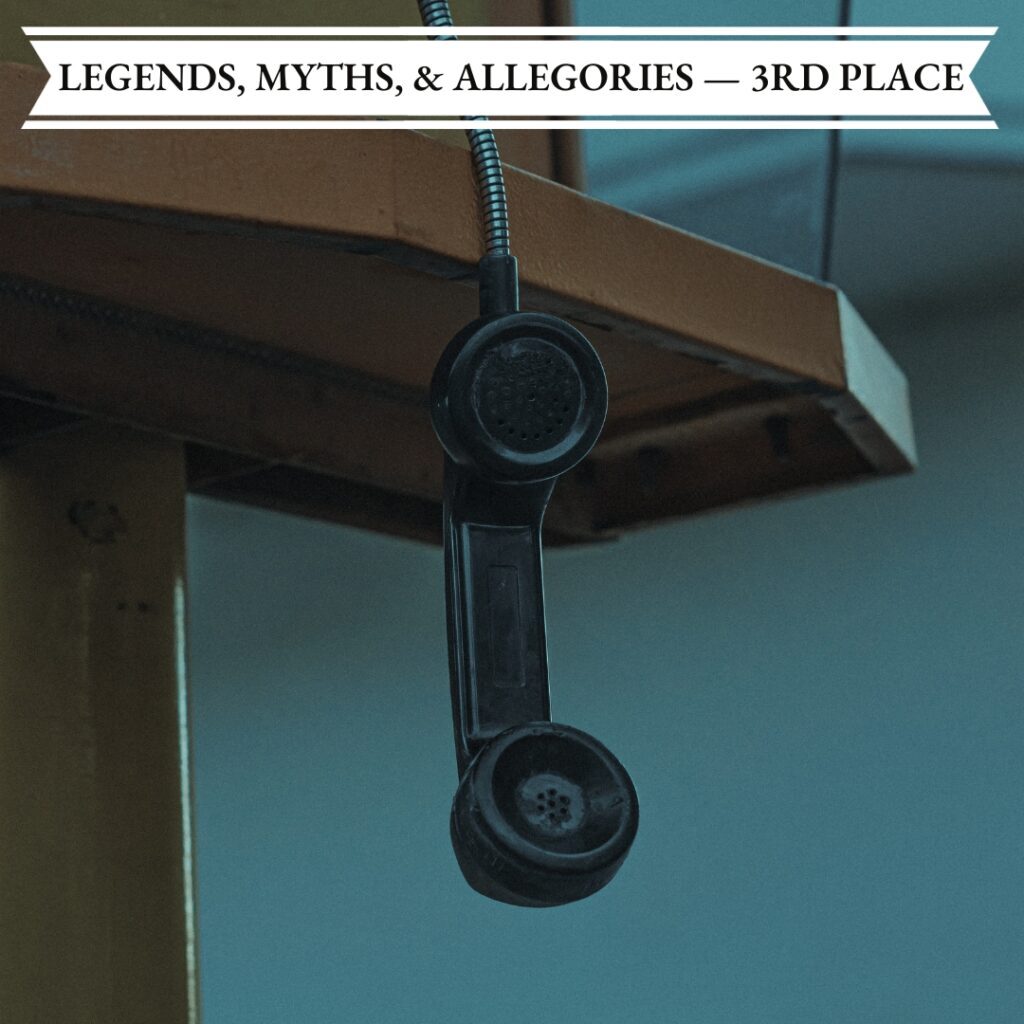
Varying Degrees of Dead
The Lifeline operator refuses to take my call when she realises I’m already dead. I tell her my name, and she looks up my file. She sounds angry, tells me to hang up, says she’s in the business of helping the living. I beg her to stay on the line, tell her it’s not enough, that I don’t feel dead enough. I ask her how I can die properly so I’m numb and cold and never. She tells me the guy I spoke to last time needed months of therapy when he couldn’t talk me down. She clicks her tongue, and the words spit out fast with none of the usual, purposefully non-triggering, tranquil sympathy. She says the whole office heard the crunch as I hit the ground, that all he could imagine was my head on the floor, brain splattered in a kaleidoscope of light and dark like a Jackson Pollock number eight.
I am not dead enough. There are so many things I can still feel. When the rain is heavy, I feel prickles of damp steam fizzing like an electric current. In crowds, I can feel people’s bubbling hatred, the way they bump into strangers on purpose, a slow, simmering rage passing like an ice-cold weather front as they push by. I can feel shadows now, can hold them, and manipulate them like ribbons. And I feel all the things I felt before, I feel the stone-weight of chronic isolation where I used to have a gut, feel the tumorous mass of loneliness where my temple used to be.
I revisit the bridge where I died, throw myself over the edge again and again, forwards, backwards, sideways. I experiment with different poses, arms outstretched like an angel, arms pointed down like a broken arrow. It takes longer to reach the ground now, there is no noise when I land. I lie in the ditch at the bottom, wondering if anything has changed, hoping I’m a little more broken, a little more empty.
I think my mother can see me sometimes. I follow her as she goes about her deadbeat day, grocery shopping, cleaning, going to church. I don’t know why she sees me sometimes and not others. One time she suddenly stares right at me in the cereal aisle of the supermarket, drops her basket, and runs from the store. I wonder if she sees me as I was when I was alive or whether I manifest with my head caved in, parts in all the wrong places like a Picasso portrait.
I follow my mother to her therapy sessions. She goes once a week, spends the whole time talking about me. She never cries, she says it would be self-indulgent – says that’s why I’m dead, that she was selfish, I’d still be here if she’d done x, y, or f. I sit next to her on the mid-grey couch, picking at the textured cream cushions. Cracks of light from the nearby window illuminate the white bones of her sunken cheeks. I think about how much I hate her, how much I despise her state of extreme inertia, how jealous I am that she is so deeply desensitised she’s catatonic.
I start to follow the Lifeline lady instead. I wait outside the office block every night and follow her home. I can tell the days they’ve had a jumper or a wrist-slitter. She walks different, holds her handbag closer to her body like she’s hugging herself. She lives alone. She has a cat. On the bad days, she talks to it, tries to entice it to her lap. Sometimes she’s worse on the nights they’re still alive, she worries that they told her what she wanted to hear, that she should have kept them talking longer, that they won’t bother ringing next time, they’ll just neck the pills. Statistics tell her every time they ring, brings them closer to the end. She eats dinner, feeds the cat, takes a shower, washes away the worry and decay. In the morning, she will dress and go to work, strive to maintain the balance between the living and the dead.
I return to my bridge. I stare over the edge for a long time, wondering if there are any parts of me still left in the earth below. As I leap over the barrier, the rain starts, the dark sky catches me, buffering me through pockets of air, buoyed by cloud. I weight myself with anger, press down against the rain, knowing it is far too late for me to learn to float.
Jo Withers writes short fiction from her home in South Australia. Her work has featured in Flash Frog, Ghost Parachute, No Contact, and XRAY, among other places. Her pieces have won prizes at SmokeLong Quarterly, Molotov Cocktail, Reflex Press, and Retreat West.
Submit Your Stories
Always free. Always open. Professional rates.
